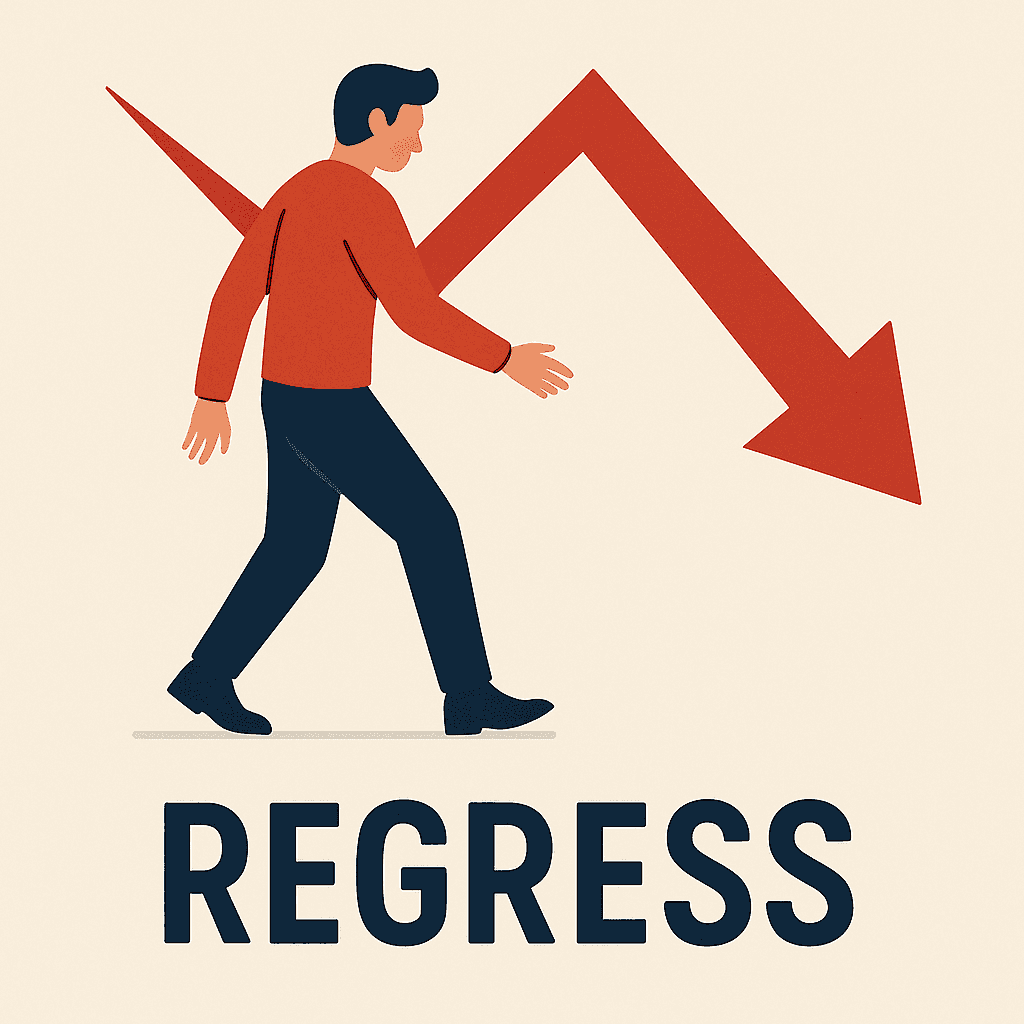Meaning
Regress can function as both a verb and a noun.
- Verb: to return to a previous or less developed state; to move backward in progress.
- Noun: the act of returning to a worse condition, or moving backward.
It often implies decline, deterioration, or a negative reversal.
Grammar and Usage
-
Verb (intransitive or transitive) intransitive: "The patient regressed after the treatment stopped." transitive: "Stress can regress your mental health to a fragile state."
-
Noun "After years of progress, the economy fell into regress."
-
Common sentence structures:
- regress to + noun (regress to childhood, regress to old habits)
- regress into + noun (regress into silence, regress into fear)
Common Phrases
- regress to childhood – behave in a childlike or immature way.
- regress into silence – withdraw from communication.
- without regress – without moving backward (formal/legal context).
Collocations
- verb + regress: begin to regress, seem to regress, cause to regress
- adjective + regress: sudden regress, complete regress, mental regress
- noun + regress: economic regress, social regress, emotional regress
Examples
- After showing improvement, the student began to regress in his studies.
- The patient’s condition regressed after discontinuing the medication.
- When under stress, some adults regress to childlike behaviors.
- The economy entered a period of regress after the financial crisis.
- Without proper therapy, his confidence may regress to its former low level.
- The country’s politics seem to be in regress, undoing decades of progress.
- During the argument, he suddenly regressed into silence.
- Children sometimes regress when they feel insecure at home.
Synonyms or Related
- Verb: deteriorate, decline, backslide, relapse, worsen
- Noun: setback, relapse, reversal, deterioration
